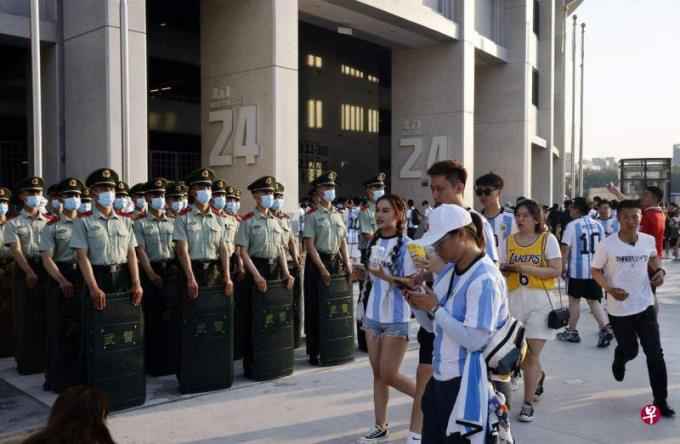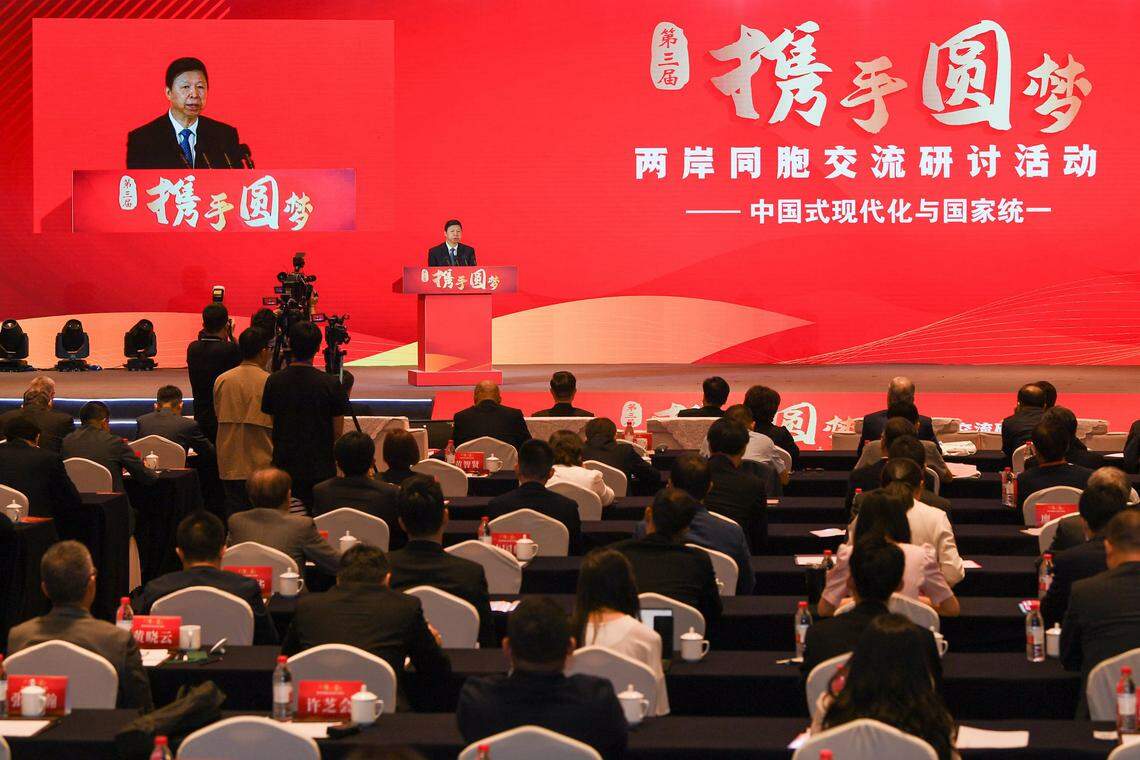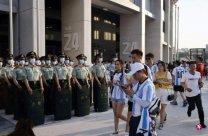
Mainland China announced its "investment in China" after the epidemic, and also entered the "big exchange year" to Taiwan.However, after the 20th National Congress of the Communist Party of China, maintaining national security is the important policy of the top priority, and then the foreign capital of the anti -spy law amendment is derived; Taiwanese scholars have been invited to communicate in land, and they have repeatedly rumored to be detained and questioned.It shows how to maintain openness and exchanges under the premise of "maintaining national security" to test the coordination ability among Chinese official departments.
Last year's 20 political reports of the Communist Party of China made the content of national security for the first time, and the outside world interpreted that the focus of Beijing for at least five years in Beijing will put security in other issues such as economy, development, and opening up.Above it.
However, in the face of unstable factors such as poor economic performance and unstable foreign -funded exports, China has continuously shouted since the end of last year's relaxation of epidemic prevention measures, trying to call back the confidence of foreign -funded foreign companies.
Li Qiang, Prime Minister of the State Council of China, emphasized at the first press conference after taking office in March this year that opening to the outside world is the basic national policy. No matter what the external environment changes, China must unswervingly advance.In June, the Ministry of Commerce of China announced that it would launch an "investment in the year of China" investment promotion activities, not only to keep "high -quality stock foreign capital, but also attract more high -quality foreign capital."
But although the official has continued to emphasize the unchanged policy of opening up, from March to May this year, foreign consulting companies such as Mintz Group and Capvision in China have been disclosed in China.Searching and being accused of leaking national secrets, inevitably caused a cicada effect among foreign companies.

In addition, the new version of the anti -espionage method that takes effect since July has expanded the scope of the definition of spy behavior and the law enforcement power of the national security unit, and expanded the scope of secret theft objects to "other documents related to national security and interests., Data, data, items ", etc., postal, telecommunications and network service operators are required to cooperate with the government to combat spy activities.
Foreign companies that violate the New Law may face fines or revoke business licenses, and foreign employees and managers may also face prohibition of departure, imprisonment, and criminal lawsuits.
Jens Hildebrandt, chief representative of the Beijing Representative Office of the German Overseas Chamber of Commerce, said in an interview with the Voice of Germany that the new law caused more uncertainty among investors, making many foreign companies in China very worried.
In order to eliminate the suspicion of foreign investment in the anti -espionage law, the Ministry of Commerce of China convened companies representatives of major trading partners such as the United States, Japan, and South Korea on July 21 to publicize and interpret the new version of the anti -spy law.Chen Chunjiang, assistant to the Minister of Commerce of China, also emphasized in the meeting that it will carry out normalized exchanges with foreign enterprises and business associations, and strengthen policy publicity and interpretation with relevant departments to improve the transparency and expected policy.
For the conflict between the security department and the business department in the respective policy goals, Song Wenyi, a lecturer of the Asia -Pacific College of the National University of Australia, analyzed in an interview with the United Morning Post.Feeling, "think first, think about it, Fang's ability to make it one place."
If you want to maintain high national security alert and attract investment, he believes that it is difficult to avoid continuing to continue to continue between different party and government departments, and it is not easy to coordinate horizontally.
Taiwanese scholars were invited to land to exchange for exchanges and were questioned when they went out of the country
On the other hand, Beijing has also recently experienced similar contradictions in promoting exchanges in Taiwan.Although since April, the two sides of the strait have gradually restarted physical exchanges on physical exchanges, and the mainland has frequently invited Taiwanese scholars to communicate in land.Long.

The Taiwanese government's mainland committee spokesman Zhan Zhihong, Zhan Zhihong, took the initiative to disclose the case at a press conference last Thursday (July 27), and suggested that the people who plan to go to the mainland to engage in academic exchanges and religious activities are not necessary to go to the mainland for the time being.
According to the Lianhe Morning Post, in addition to the exception of the aforementioned case, at least two Taiwanese scholars who have been invited to the exchange occurred at least two from June to July.
Kou Jianwen, director of the International Research Center of Taiwan Politburo, has shouted to Lu Fang in March this March this year.At that time, he emphasized that if the mainland is positioning this year as the "year of exchange" cross -strait and trying to restore cross -strait folk exchanges, he should think about how to provide the security guarantee for the Taiwan people to communicate in land.
In response to the recent re -rumor Taiwanese scholars, he revealed in an interview with this newspaper that when he was invited to Beijing with the scholar group of the East Asian Research Institute of Zhengda University, he also visited the official think tank.Serious concerns.
Kou Jianwen analyzed that cross -strait exchanges have been suspended in the past three years, and now they have gradually recovered. The official departments of the mainland are facing coordination issues in implementation."The year of exchange for the National Taiwan University is the central policy of the (Beijing), and the national security is also a central policy. Everyone is doing it. Some people focus on Guoan. Some people focus on exchanges. Who do you say wrong? No one is right. So this is a question of coordination."
He analyzed that in this situation, other departments may not cooperate with the Taiwan department when considering the means of law enforcement, and this "left foot stepping on the right foot" problem, but this will also make Beijing against Taiwan against TaiwanThe work is more "half -efficient."



